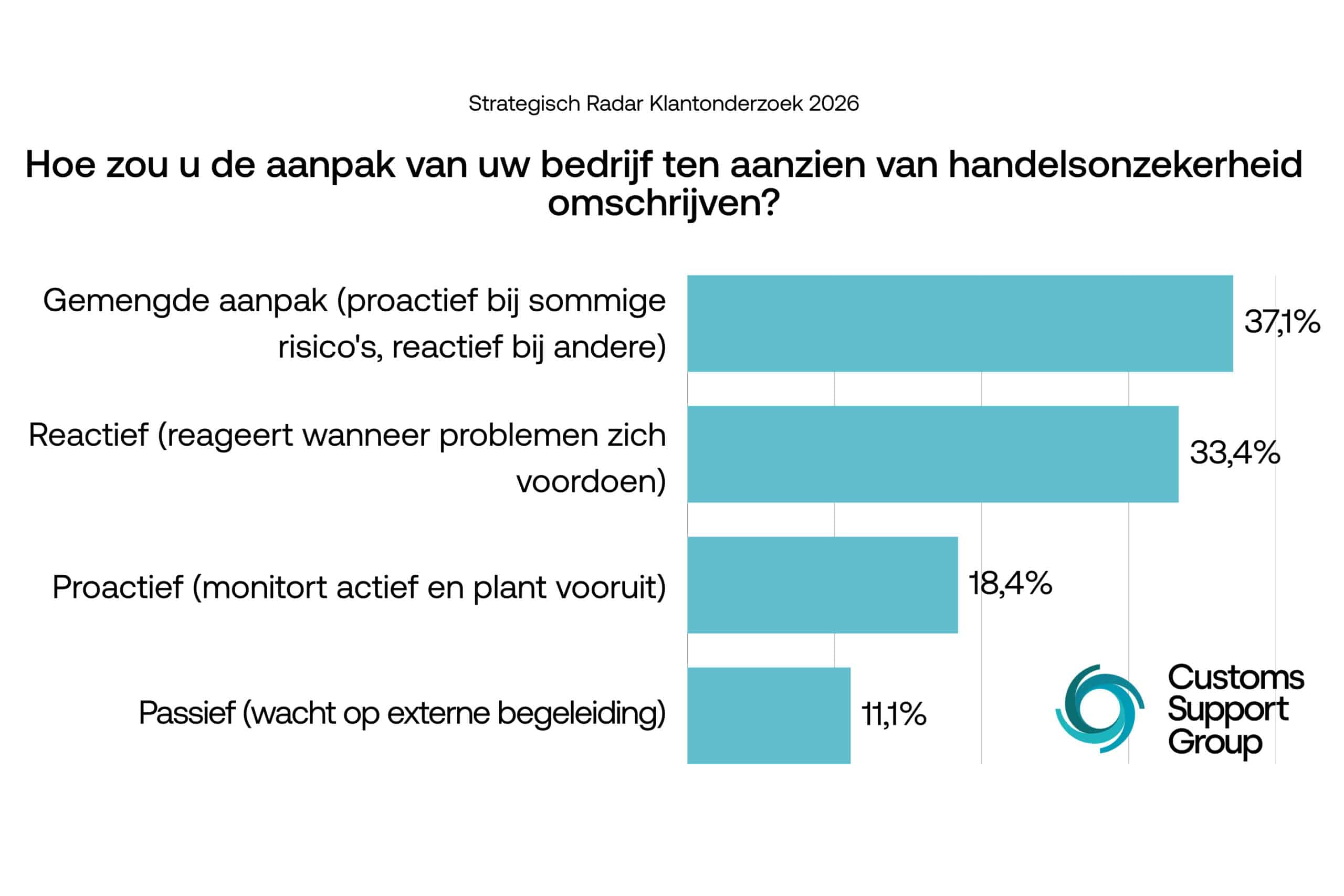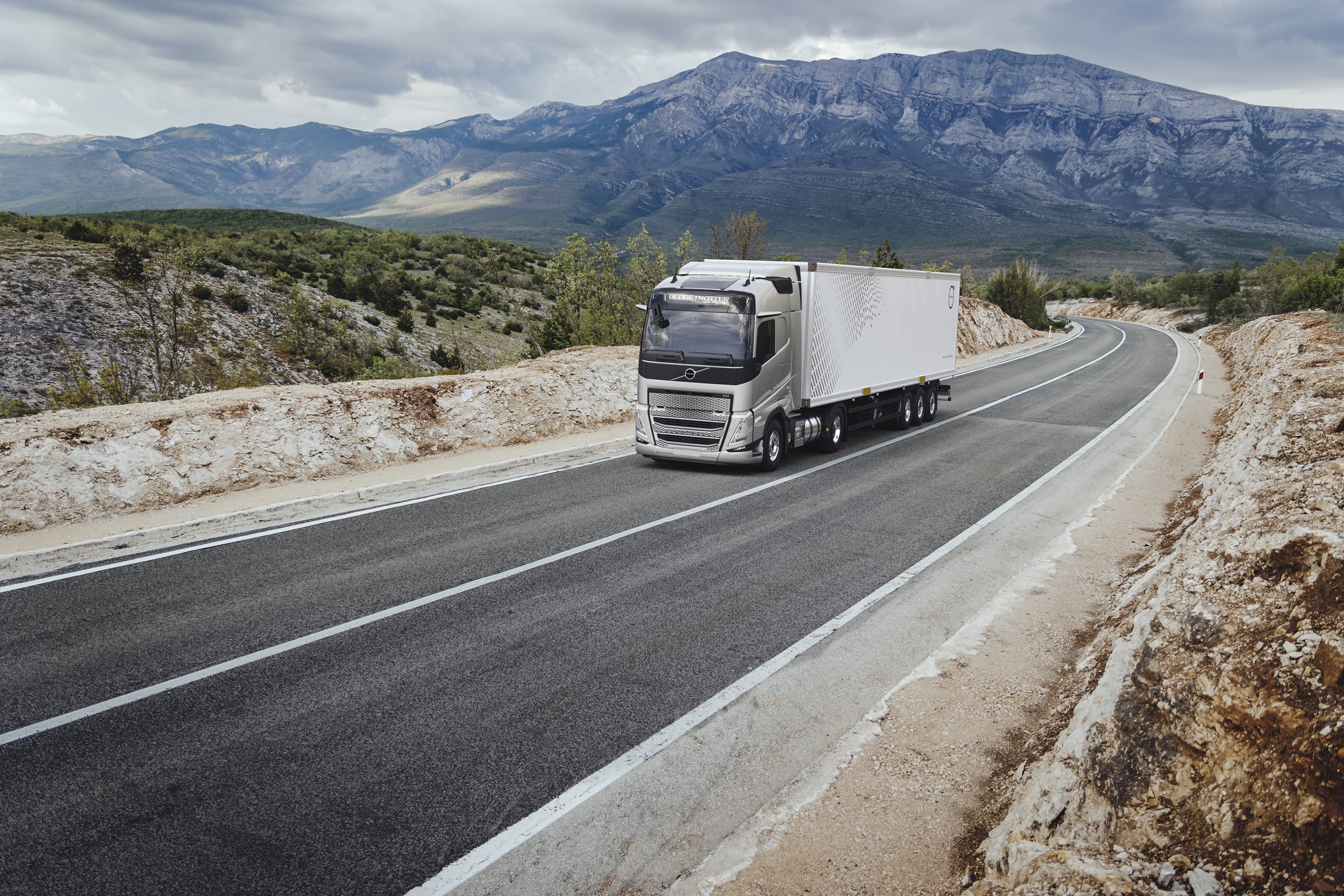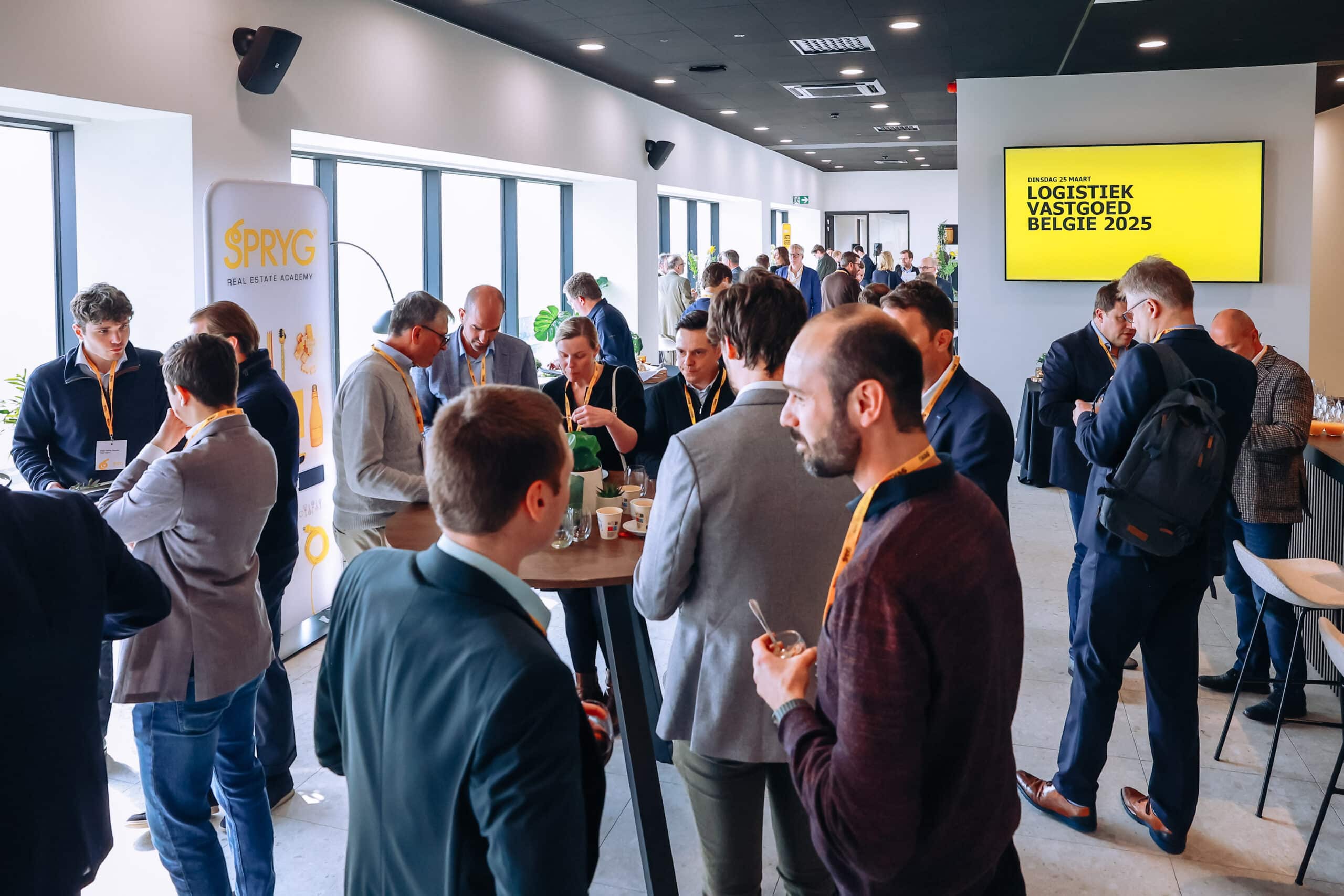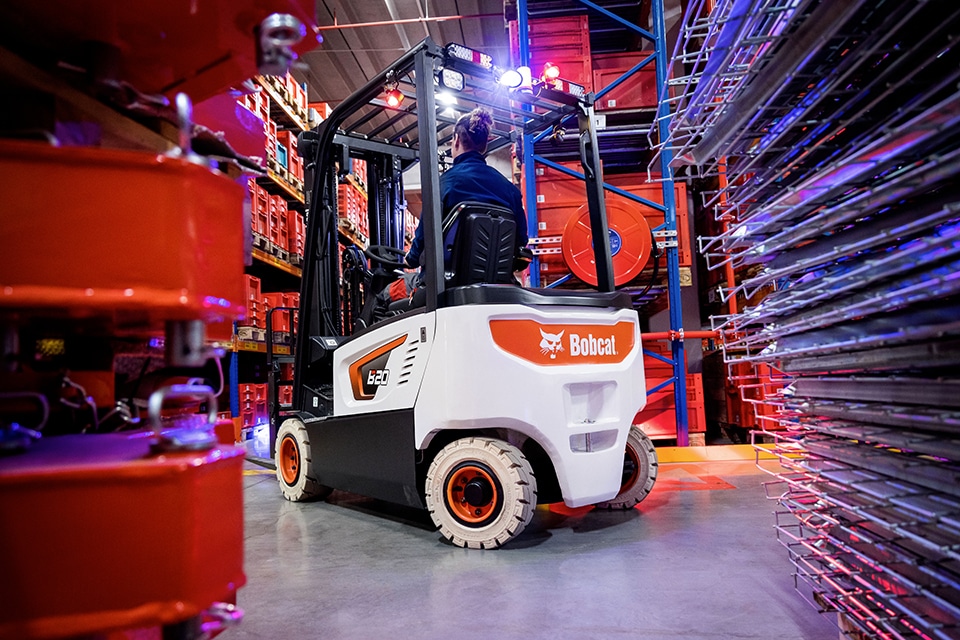
Bobcat: new brand of forklifts and warehouse equipment introduces itself
Supply program consists of several lines
Recently, the logistics market has gained a brand of forklifts: Bobcat. The company is known for an extensive range of compact machines used in construction, agriculture, landscaping, demolition and recycling. Often the Bobcat loaders and telescopic handlers, which can be equipped with attachments such as buckets, grabs, bale clamps, dump hoppers and pallet forks, are used for material handling and logistics tasks. No wonder, then, that Doosan Industrial Vehicle's products - forklifts and warehouse equipment - are included in the Bobcat program. The machines will be produced in the familiar Bobcat design as of Jan. 1.
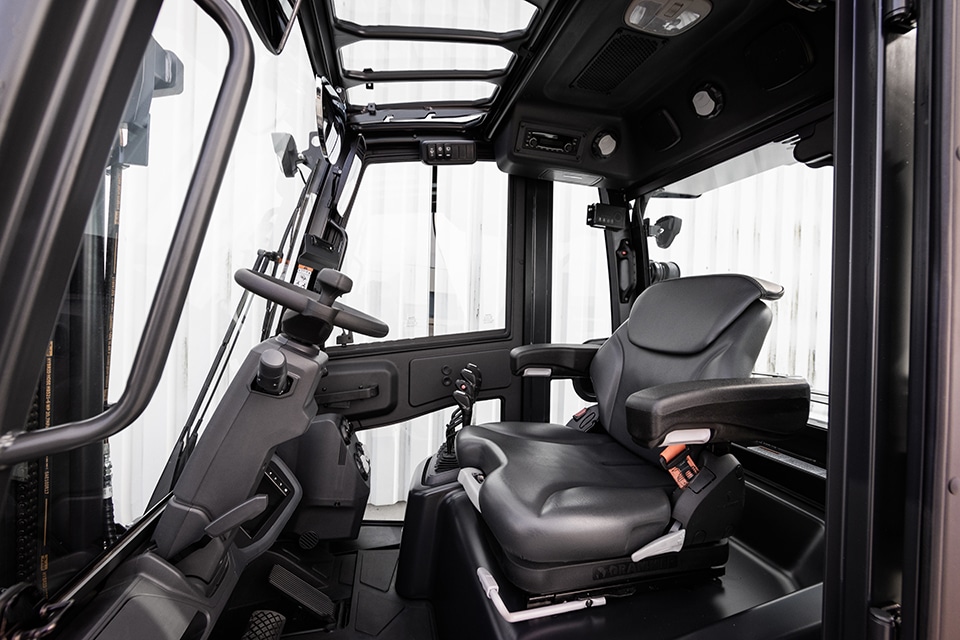
The history of Bobcat forklifts goes back to 1968 when the first forklift was produced in South Korea under the Daewoo brand. In 2005, the company was acquired by Doosan, which established Doosan Industrial Vehicle (DIV) in 2011. In 2021, Doosan Bobcat took over the company and with it the company's infrastructure. That consists of two plants in Incheon (Korea) and Yanta (China), where forklifts are produced, and a plant in Lübben (Germany) where pallet trucks and stackers are made.
Warehouse and inspections
In 1993, Doosan Industrial Vehicle began selling forklifts in continental Europe from a location in Belgium. In 2007, the company moved to a warehouse and distribution center for forklifts, warehouse equipment and spare parts in Sint-Niklaas. Sint-Niklaas is also home to Doosan Industrial Vehicles' European headquarters, which houses the sales, marketing, customer service, technical support, administration and HR departments.
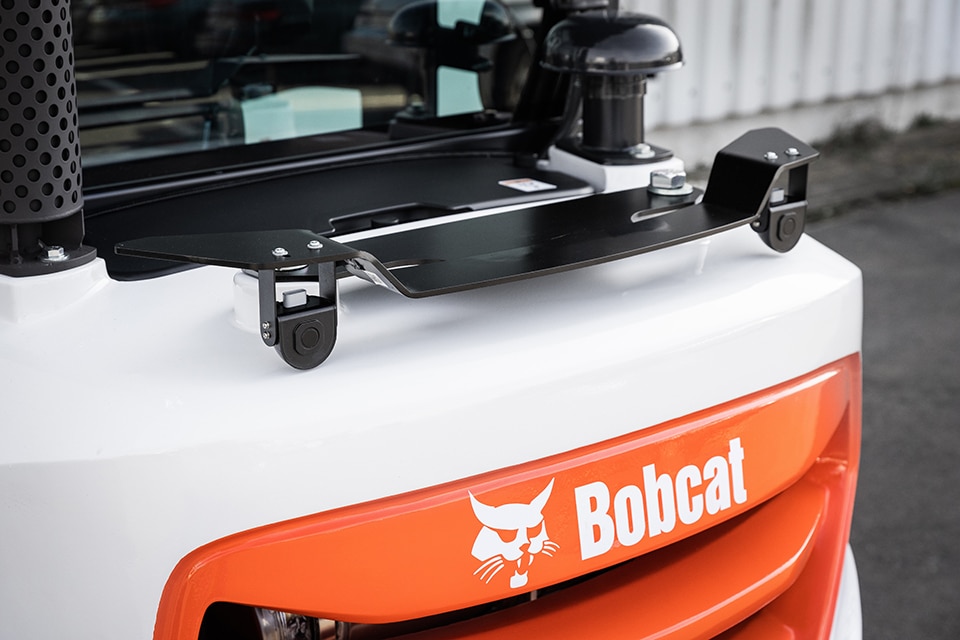
The site in Sint-Niklaas, now renamed Doosan Bobcat Belgium, will undergo a number of changes involving an investment of some two million euros. The offices will be extensively renovated and decorated in the Bobcat house style. In addition, the facilities for technical testing, pre-delivery inspections and service will be expanded and modernized. For example, new lifting bridges and a spray booth will be installed. In addition to Sint-Niklaas, Doosan Industrial Vehicles has its own sales offices in France, Italy and Germany. Other countries work with importers/resellers. For the Netherlands, these are Van Riel Forklifts in Tilburg and Ausma Vorkheftrucks in Heerenveen. Both resellers use an extensive network of sub-dealers. The company currently operates in more than 90 countries.
Product Portfolio
Bobcat's supply program for logistics and material handling consists of several product lines: a range of diesel lift trucks with lifting capacities from 2 to 16 tons; a range of LPG lift trucks with lifting capacities from 2 to 7 tons and a range of electric lift trucks with lifting capacities from 1.2 to 10 tons. Also included in that segment is a line of 3-wheel electric forklifts for light-duty work from 1.2 to 2 tons. Warehouse solutions include pallet trucks, stackers and reach trucks.
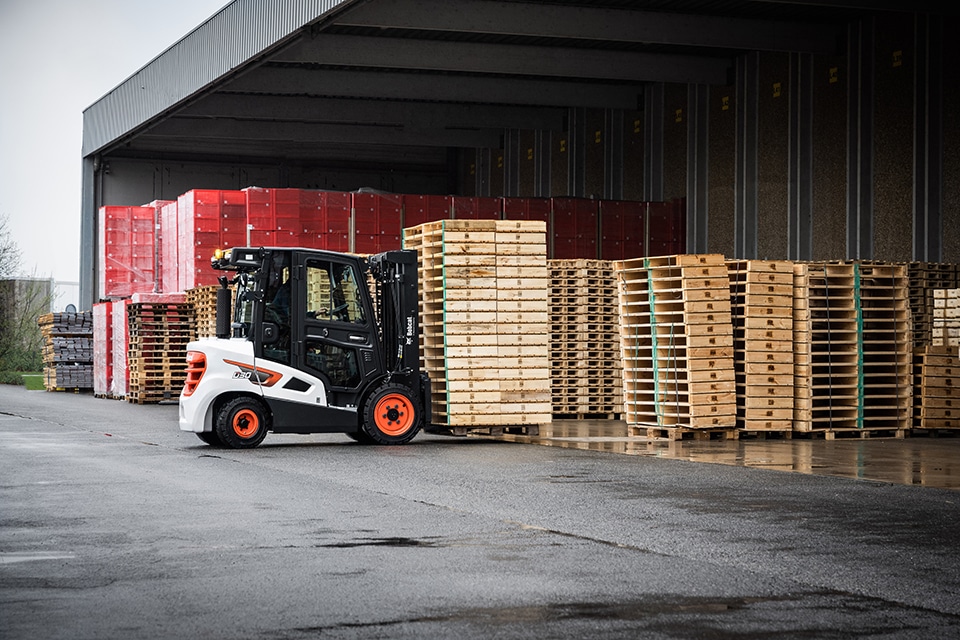
At the last LogiMAT in Stuttgart, Doosan Bobcat introduced a number of new machines. On display, for example, was the new B80NS forklift, part of a series of counterbalanced electric forklifts with lifting capacities of 8 and 10 tons. Also on display were two prototypes: the B18NT three-wheel, lithium battery electric forklift and the B30X-7 Plus hydrogen-powered forklift.
Bobcat DNA
Doosan Industrial Vehicle's website states that the company's ambition is to bring simple, powerful machines to the market that are comfortable for the operator and also environmentally friendly. These ambitions make it clear, that the two companies are a perfect match, as Bobcat's principles are almost the same. Both companies are also heavily committed to innovation in order to develop valuable and reliable products for their customers so that they can do their jobs efficiently and get the best return on their investment.
The integration into Doosan Bobcat allows DIV to benefit from Bobcat's extensive R&D facilities, a number of interesting technical innovations, marketing expertise and extensive dealer network, while thanks to DIV, Bobcat now has a virtually complete portfolio of compact machines.

